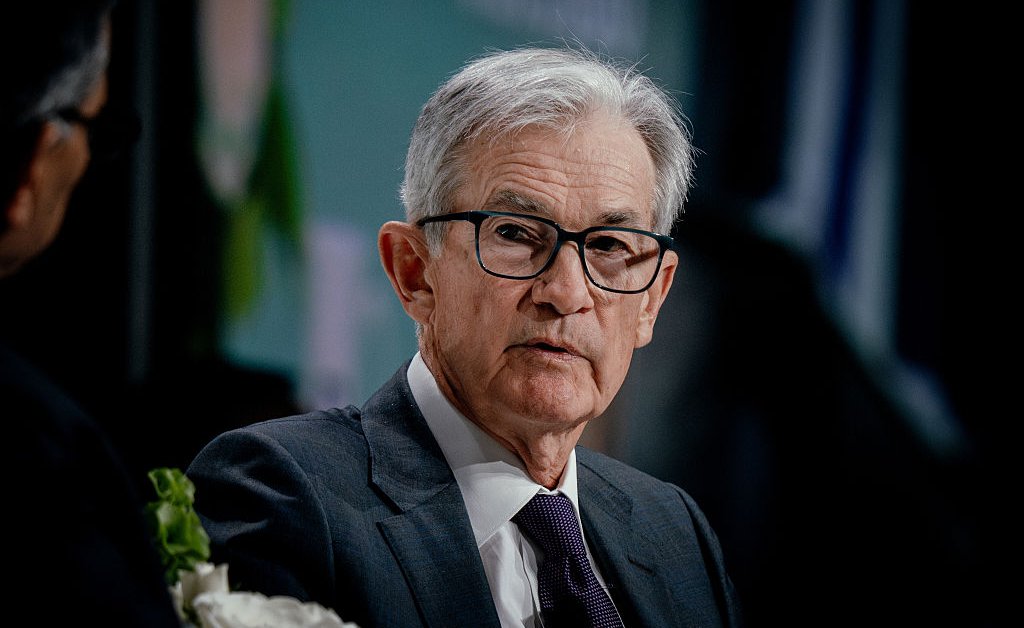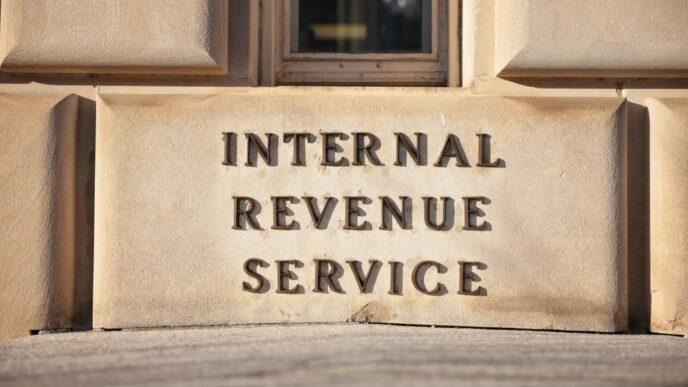This article is part of The D.C. Brief, TIME’s politics newsletter. Sign up here to get stories like this sent to your inbox.
President Donald Trump knows exactly who to blame for the tanking economy: Federal Reserve Chairman Jerome Powell, who has not acceded to Trump’s whims to lower interest rates to goose the economy.
For just about everyone else—including Jay “Mr. Too Late” Powell, in Trump’s latest nickname of contempt—the culprit is just as clear: Trump himself, who has threatened, implemented, suspended, swapped, and escalated tariffs like so many wallpaper swatches.
The White House is treating the debate as if it is not quite so one-sided, while also trying to act as if every new statement from Trump or Treasury Secretary Scott Bessent represents a coherent policy. For a President obsessed with the stock market, the rebuke from investors is particularly stinging.
Since Trump took office, stocks have tanked, the bond market has gone wobbly and the dollar is weaker. Just Tuesday, the International Monetary Fund revised its forecast, upping the odds of a recession to 37% from its previous marker of 25%. That’s more conservative than the assessment of Americans—42% of whom think the economy is already in recession or economic depression, according to Gallup’s latest polling.
This all helps explain why Trump in the last 36 hours seems to have climbed down from a cliff of his own making—by saying he has “no intention” of firing Powell, a few days after posting “Powell’s termination cannot come fast enough!” (To be clear: whether a President can depose the head of the Fed is completely untested. Markets are unequivocally terrified of Trump even trying to do so.)
Meanwhile, Bessent told a closed-door speech to JPMorgan Chase that he expects a de-escalation of the trade war with China, where U.S. policy is adding 145% to imports and China is tacking on an extra 125%. “Neither side thinks the status quo is sustainable,” Bessent said in Tuesday remarks that leaked as expected and sent markets surging. (The Bessent Effect is real, as Bloomberg notes; on days when he’s headlining the economy, markets move upward.)
Here’s the thing: Investors crave certainty. That’s why the United States is the far-and-away top destination for foreign direct investment, logging more than $5 trillion in holdings from non-Americans. To put that in perspective, that’s roughly 10 cents of every FDI dollar invested globally, according to IMF data.
On Tuesday, Wall Street rallied on Trump’s and Bessent’s remarks, but you talk to anyone in Washington in touch with major investors and it’s clear no one is taking those statements as reliable for more than a few days. For now, things look to continue racing in the wrong direction. The IMF forecast downgraded U.S. economic growth to a meager 1.8% this year, down from an expected 2.7%. (In Biden’s final calendar year in office, the economy grew by 2.8%.)
Trump, too, seemed to realize things are going poorly, but he continues to blame Powell, who could lower borrowing rates and juice the flagging economy. Such a move, though, risks nudging inflation, which is a persistent worry. Core inflation—which excludes highly volatile food and energy prices—is at its lowest rate since March 2021.
On Wednesday, Bessent used a gathering on the sidelines of an IMF event in Washington to pay lip-service to Trump’s unique brand of grievance, while still trying to calm markets.
“The IMF was once unwavering in its mission of promoting global monetary cooperation and financial stability. Now it devotes disproportionate time and resources to work on climate change, gender, and social issues,” Bessent said. He also blamed “mission creep” for not doing more to keep the global economy in equilibrium—often to the United States’ advantage.
In a follow-up meeting with financial reporters, Bessent said de-escalation with China is a priority but the two countries’ leaders are not in talks, and a deal cannot be negotiated with underlings. He also hinted that Trump’s team would see it as a victory if a general framework comes into place without any hard agreement.
The White House continues to sell all this as a hiccup that won’t stop the ushering in of a new golden age of manufacturing as firms realize they’d rather invest in factories here than pay the import taxes. The real culprit, in the West Wing’s mind, remains Powell. Or at least he is a viable place to offload the blame. White House Press Secretary Karoline Leavitt on Tuesday told reporters that the Fed was needlessly keeping rates steady “in the name of politics, rather in the name of what’s right for the American economy.”
Among those who watch the Fed and the billions of dollars it moves on Wall Street, the story the White House is telling doesn’t match reality. And as investors brace for the bill to come due from Trump’s standoff with, well, the world, the Administration’s constant messaging shifts are beginning to drown out the messages themselves.
Make sense of what matters in Washington. Sign up for the D.C. Brief newsletter.














